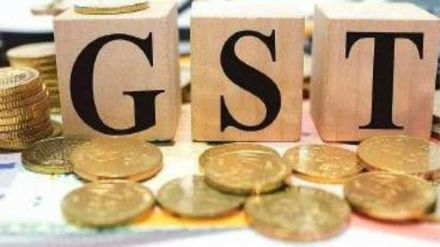The Directorate General of GST Intelligence on Friday slapped a demand of Rs 11,139.6 crore on e-gaming company Delta Corp, for alleged underpayment of the Goods and Service Tax (GST) for the period between July 2017-March 2022.
The amount demanded includes interest and penalty, the company informed the stock exchange during the day, adding that it “will pursue all legal remedies available” to challenge such tax demand, which it is told is “arbitrary and contrary to law.”
This is believed to be the second highest tax demand on an e-gaming company by the GST department after it asked Bengaluru-based online gaming firm Gameskraft to cough up Rs 21,000 crore in September, 2022. The matter is now before the Supreme Court, which on September 11 stayed the Karnataka High Court’s May 2023 judgment that quashed the tax notice.
The tax demand on Delta Corp indicates that the government is sticking to its stance that GST at 28% was always applicable to online gaming and casinos, at the full bet value/actionable claims.
The GST Council on August 2 decided that 28% tax shall apply on the full face value of bets, without any distinction between games of skill or chance. While the decision is to take effect from October 1, a dispute is ongoing between the online gaming industry and the revenue department over how the GST was to be applicable to the sector prior to date when this decision will be implemented.
Delta Corp said in a stock exchange filing: The amount claimed in the DG Notice is inter alia based on the gross bet value of all games played at the casinos during the relevant period. Demand of GST on gross bet value, rather than gross gaming revenue, has been an industry issue and various representations have already been made to the government at an industry level in relation to this issue.”
Online gaming stocks including Nazara Tech and Delta Corp suffered losses after the Council in July indicated the plan to levy 28% uniform tax on online gaming.
The government has clarified that the tax on online gaming will apply only at the entry level, and not at the stage of every bet. Relevant amendment to GST laws were approved by Parliament in the last leg of the monsoon session.
According to tax experts, if 28% tax is applied only at the entry-level face value and not each time bets are placed and the subsequent winnings, then the tax liability on e-gaming firms will come down, from the amounts mentioned in the tax notices. In Gameskraft’s case, the liability could come down to Rs 5,000-6,000 crore.
Of course, the Centre holds on to the stance that the new decision will only have a prospective validity, “Several issues need clarity, including whether the Council’s decision will be implemented prospectively or retrospectively. Tax notices in past cases were based on each bet. So, clarity is needed for the notices of cases investigated earlier and whether those will be based on the entry-level face value bets or on each bet,” a source had told FE earlier.
The finance ministry has also made 28% tax applicable to foreign gaming platforms, and asked them, to either register here or designate local agents for the purpose of tax. Non-compliant firms are barred from providing such services to Indian residents.
On their part, the GST field formations have written to the Central Board of Indirect Taxes and Customs to clarify these issues before fresh notices are issued to gaming platforms.
The SC bench headed by Chief Justice DY Chandrachud did not make any observation on the HC view that rummy played on the online platform was a “game of skill,” while it listed the matter for hearing three weeks from September 11.
The Council had also recommended that valuation of supply of online gaming and actionable claims in casinos may be done based on the amount paid or payable to or deposited with the supplier, by or on behalf of the player (excluding the amount entered into games/ bets out of winnings of previous games/ bets) and not on the total value of each bet placed.
Revenue secretary Sanjay Malhotra had said the GST receipts from the burgeoning online gaming industry were barely 2% of its estimated turnover of Rs 85,000 crore in FY23. He said the clarification, approved by the GST Council, that online gaming attracts 28% GST, would apply to the cases which are ongoing in various courts. “The 28% tax applies already to online gaming. If there was any doubt, we have now clarified that,” Malhotra had said, after the August 2 council meeting.
